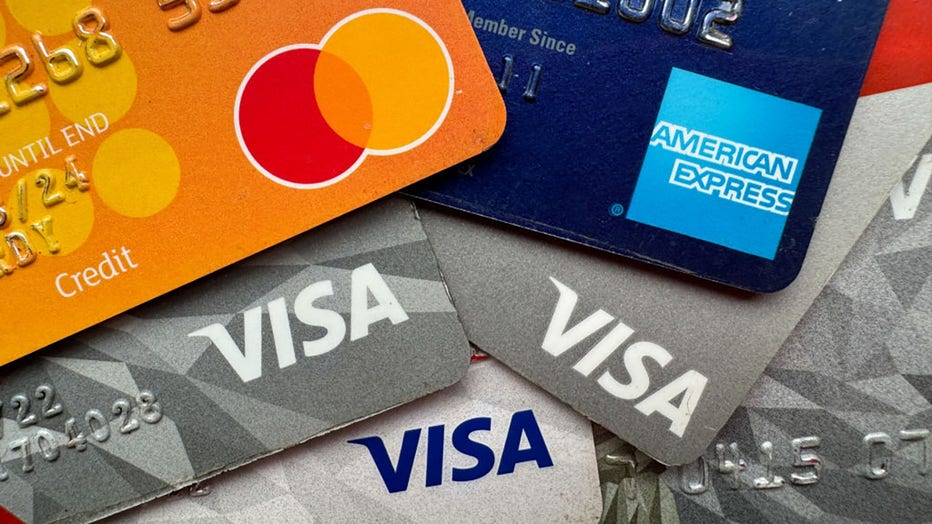Top US cities where Americans are adding the most debt
U.S. national debt surpasses $35 trillion
The U.S. national debt surpasses a staggering $35 million. Insigneo Chief Investment officer, Ahmed Riesgo, joins LiveNOW from FOX to discuss the latest.
Americans are increasingly turning to their credit cards to cover expenses, hitting a record amount of debt nationwide. However, some U.S. cities are accumulating new debt at a faster pace than others.
A new report, published on Wednesday by WalletHub, compared 100 of the largest U.S. cities based on consumer debt proprietary data in the first half of 2024.
Here's what it found:
US cities with most credit card debt
Boston was deemed to have the biggest overall increase in consumer debt during the second quarter of 2024, according to WalletHub’s report.
The average credit card balance in Boston increased by 6% from Q1 2024 to Q2 2024, rising to $9,096 – a figure that represents the largest increase in the country, and the sixth-largest final balance, the report said.
Meanwhile, the average Bostonian’s personal loan balance increased by around 3.5% during the same period, reaching $12,440.
"This was the third-largest increase in the country, and residents’ average personal loan debt is the 12th-highest among 100 of the largest cities," WalletHub said.
Furthermore, the average auto loan balance in Boston increased to $23,649 in Q2 2024, a 1% jump.
North Las Vegas, Nevada, a city just north of Sin City as the name describes, was found to have the second-largest increase in consumer debt from the first quarter of 2024 to the second.
The average balance of auto loans among residents in North Las Vegas reached $26,553, personal loan debt increased by 2.2% to hit $13,918, and the average credit card balance went up by around 2.5%, reaching $7,103.
Madison, Wisconsin, a college town that’s home to the University of Wisconsin–Madison in the North Central Plains, saw the third-biggest increase in consumer debt from Q1 2024 to Q2 2024.
The average credit card balance in Madison increased by 3.2% to $6,074, the average auto loan balance in Madison went up by 3.9% to $21,294, and the average personal loan balance in Madison went up by 0.8%, rising to $7,978, according to WalletHub.
Click here for WalletHub's full report and ranking.
Tips for paying off credit card, other debt

FILE - In this photo illustration the Visa, Mastercard and American Express logos are seen on credit and debit cards on Nov. 5, 2023. (Photo by Matt Cardy/Getty Images)
Nationwide, credit card debt hit a new record high at the end of June, according to a New York Federal Reserve report published on Tuesday.
In the three-month period from April to June, total credit card debt rose to $1.14 trillion, an increase of $27 billion, or about 1%, from the previous quarter, according to the report. It marks the highest level on record in Fed data dating back to 2003.
Credit card delinquencies continued to rise from their pre-pandemic levels in the second quarter. As of June, about 9.1% of outstanding credit card debt was in some stage of delinquency, up from 8.5% the previous quarter.
RELATED: To fight inflation, more Americans are using digital coupons and scoring big savings
The rise in credit card usage and debt is particularly concerning because interest rates are astronomically high right now. The average credit card annual percentage rate (APR) hit a new record of 20.73% last week, according to a Bankrate database that goes back to 1985. The previous record was 19% in July 1991.
As a result, many debt holders are likely looking to pay down their credit cards and other loan balances. WalletHub offered several tips for consumers:
- Create a detailed debt repayment plan: "Start by listing all your debts, including the total amount owed, interest rates, and minimum monthly payments. Develop a repayment plan by allocating extra funds to the debt with the highest interest rate while making minimum payments on others," WalletHub said, noting how this strategy is often called the "avalanche method," saving the most money on interest long-term.
- Cut unnecessary expenses: "Review your monthly budget and identify areas where you can cut expenses. Redirect the money this saves you to debt repayment," WalletHub suggests. By eliminating non-essential spending, consumers can allocate more funds toward paying off their debts faster and saving for emergencies.
- Negotiate lower interest rates: "If you’re truly having trouble making your payments, reach out to your creditors and explore the possibility of negotiating lower interest rates," WalletHub recommends, adding that consumers may be able to get a "temporary fix" through a hardship plan.
- Generate additional income: "Explore opportunities to increase your income, such as taking on a part-time job, freelancing, or selling items you no longer need," the personal finance company said. "Supplementing your income provides extra funds that can be dedicated to paying off your debts more efficiently."
- Refinance your debt: "If you have good or excellent credit but your debts have high interest rates, you should consider using a balance transfer credit card or debt consolidation loan to move the balance to a lender that charges a lower interest rate," WalletHub said. "With a balance transfer credit card, you may even be able to secure an introductory 0% APR for a year or longer, giving you time to pay off your debt interest-free."
This story was reported from Cincinnati. FOX Business contributed.

